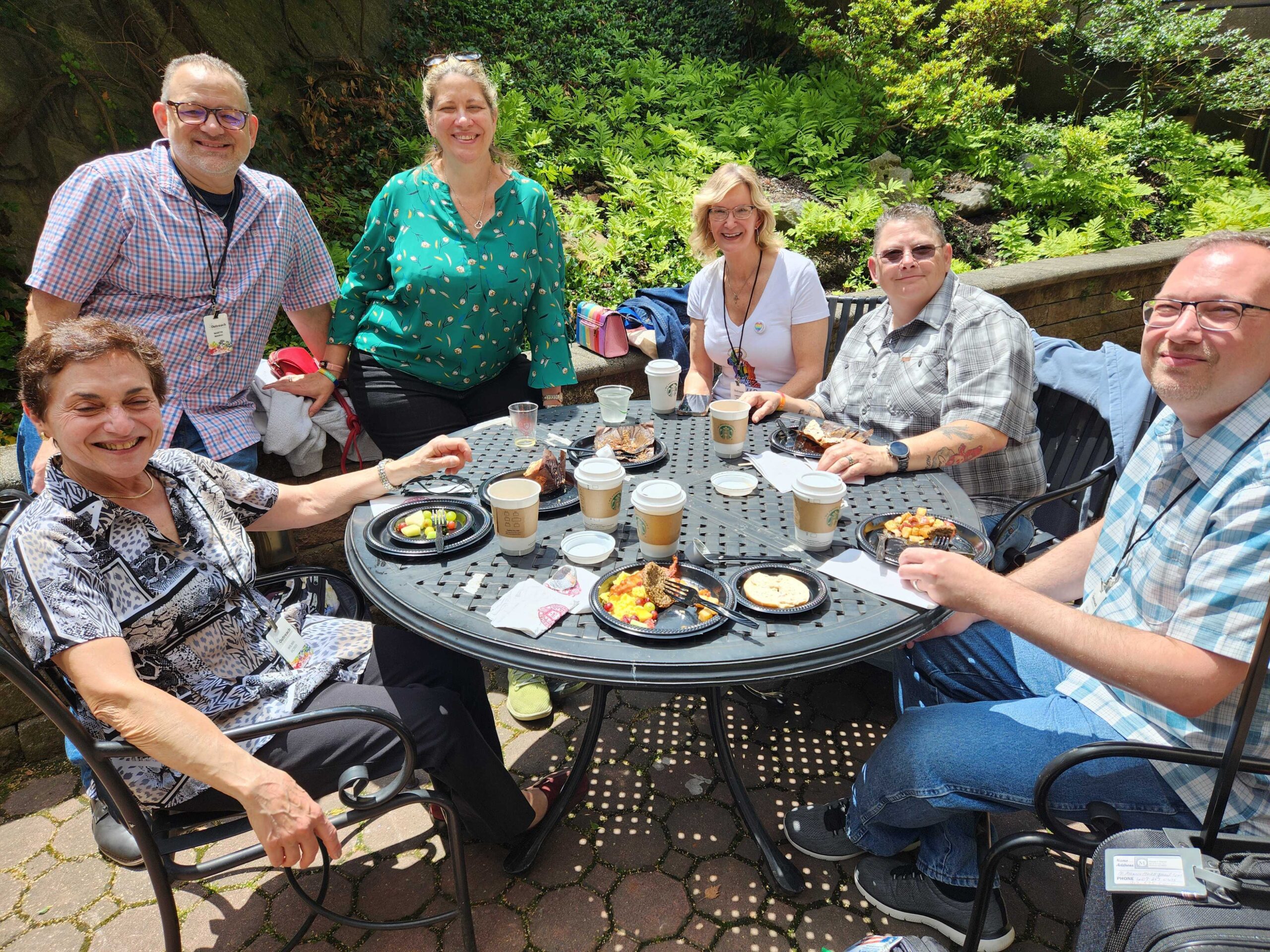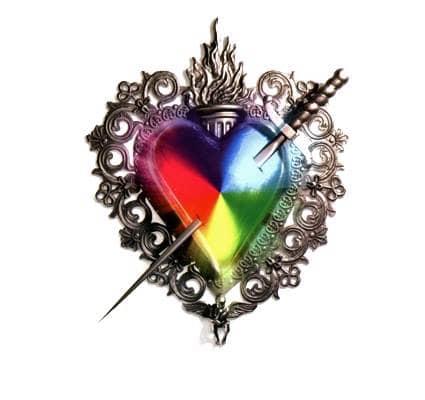One of the important gifts of Outreach is how it enables people to encounter a loving community. This June, its annual conference brought people together in reverence, love, faith, joy and respect. Before the event, Pope Francis sent a letter to panelists and participants, encouraging their ministry of fellowship and worship. Cardinal Timothy Dolan, the archbishop of New York, in whose archdiocese the conference was held, also sent a gracious public letter of support.
Importantly, the letters didn’t shame or condemn the ministry, priests, theologians or others who participated. Instead, the letters, like the weekend itself, promoted a spirit of love and acceptance. Perhaps Pope Francis wanted to remind us that Jesus had a habit of welcoming people who made some others uncomfortable. In many Catholic hymnals, you will find a song called “All Are Welcome.” Outreach is ensuring our brothers and sisters, sons and daughters, mothers and fathers, are all welcome.
Whenever we welcome one another, it can be an act of holiness. Holiness doesn’t animate shame, anger or judgement. Rather, holiness allows for acceptance, tenderness and compassion. Holiness also doesn’t categorize and segregate anyone. It receives all of us. Pope Francis encourages the Catholic Church to receive all our brothers, sisters and siblings with loving, open arms. Holiness, like love, floats above all of us.
Holiness doesn’t animate shame, anger or judgment. Rather, holiness allows for acceptance, tenderness and compassion.
Of course, it’s no secret that some of the most compelling examples of compassion and holiness in the Catholic Church, for centuries, were brought to life by people who would feel just fine at an Outreach gathering.
The conference celebrated “all the People of God”
The Outreach weekend, a gift to all, also included several opportunities to worship together. Since the conference took place at Fordham, a Jesuit university, it made sense that some of the theologians (but not all) came from a Catholic background. But membership to any specific faith tradition wasn’t required.
Outreach is decidedly Catholic as it was begun, in part, to calm some of the fears and misunderstandings about LGBTQ Catholics. Various faiths from around the globe are uncomfortable with the queer community, and Outreach serves as a model of acceptance, compassion, understanding and worship.
Further, Outreach is holy because it celebrates all the People of God. In the Christian tradition, natural law plays an important theological role. The natural order is understood to be created by God and we, being part of creation or part of the natural order, are created in holiness. To me, being queer doesn’t violate natural law. Rather, it’s a valid experience within the natural order.
Every person in the LGBTQ community is holy, loved by our Creator and unquestionably worthy of being loved by others. We all participate in creation, and it can be said we are exactly who God created us to be. When we worship together, we call to mind that we are members of a holy community.
Various faiths from around the globe are uncomfortable with the queer community, and Outreach serves as a model of acceptance, compassion, understanding and worship.
LGBTQ people are called to holiness
Holiness is beautiful because it’s vague, but familiar; trying to define it is tricky. It occurs when we are present to an experience that opens our hearts and minds to what’s happening beyond the moment. It’s worth keeping in mind that holiness is around us frequently. It can come to us while we’re watching the sunset, cuddling with a lover, enjoying a meal, consoling a sad friend, listening to music, dancing, and in a million other ways. Whenever we are aware that something sacred could be happening, or that grace is somehow present, we are at the threshold of holiness.
Holiness often appears as though it were a gentle breeze. If we reflect on our lives, we may see moments of awe, compassion, gratitude, grief or intimacy, which invite us to consider sanctity or transcendence. Helping a stranger, calling a person who needs encouragement, reminding any queer person that they are loved and valued—these can all be moments of holiness.
Among the noise of daily life, it can be easy to miss the gentle breeze. But it’s worthwhile to stop at the end of the day and reflect on the tender moments, the sad moments and everything in between to see where God might have been present in a special way. Our Creator invites all of us, queer or straight, to encounter holiness. Love and holiness embrace all people.
Being authentic is part of being holy
Being most authentically who we are is a part of that holiness. As Thomas Merton wrote, “For me to be a saint means to be myself.” The path to authenticity, of course, can be challenging for anyone, and it’s often more complicated for LGBTQ people. But once self-knowledge and self-acceptance begin to take hold, holiness can be especially life-giving.
Presenting oneself authentically, with love, acceptance (and, yes, pride) can be one of the holiest experiences in life. It is during such experiences of holiness in which a person can recognize graces and notice blessings that affirm God’s love. Sometimes this is where we learn we can be loved, where an extraordinary form of holiness becomes realized.
The path to authenticity can be challenging for anyone, and it’s often more complicated for LGBTQ people.
Sadly, some people disconnect sexuality from the beauty of creation. But that is not God’s doing. There are far too many instances where the authentic holiness of love is condemned and persecuted. Conversely, in the LGBTQ community, it’s often the case that one person finally musters the courage to be honest about themselves and share their truth with someone they trust. When that happens, and a person says something like, “This is how I am created, and I hope it’s okay,” and the person they trust responds with, “I love you,” it can be one of the holiest moments in life.
There is no convincing theological argument that separates the queer experience from a valid role in creation. How can it be that creation doesn’t provide for the holiness of love, grace and joy for queer people? Is our Creator that small? The idea that queer emotions or sexuality are somehow not a natural part of creation seems to be a human notion that limits holiness.
It’s good to humbly reflect on the holiness of the LGBTQ experience. Within the community there is love, understanding, acceptance, forgiveness, patience and dignity. The queer community represents many of the most important elements of holiness from all world religions. The Outreach conference animated all of this, and it’s heartening that Pope Francis made a point of offering his prayers and good wishes. Though he wasn’t here to sing “All Are Welcome,” he made his point.




